#lithuanian mythology
Photo
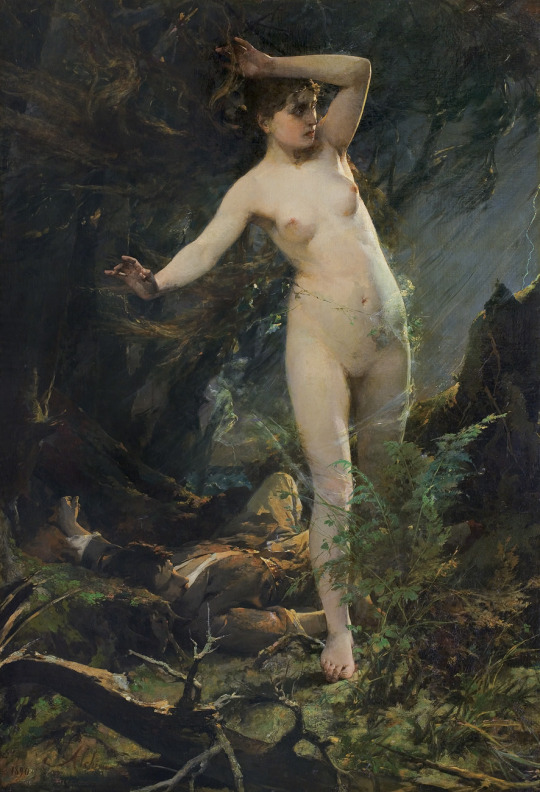
Milda, Goddess of Love by Kazimierz Alchimowicz (1890)
#kazimierz alchimowicz#art#paintings#fine art#19th century#19th century art#romanticism#romanticism art#polish art#polish artist#mythology#lithuanian mythology#baltic mythology#goddess#milda#love goddess#classic art
4K notes
·
View notes
Text

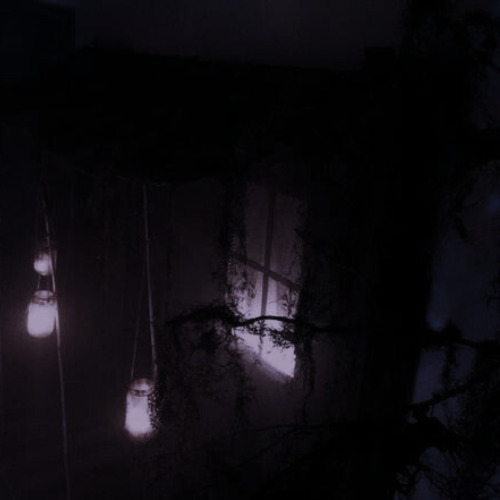



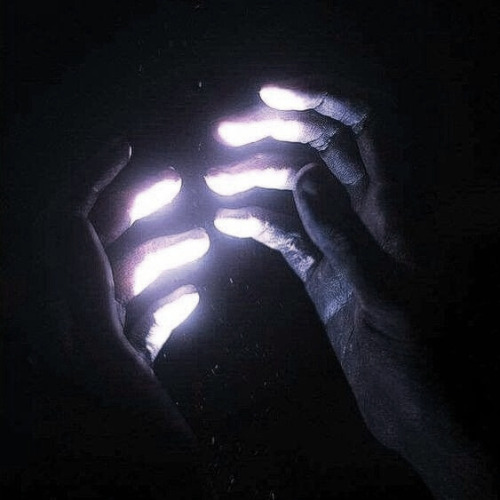

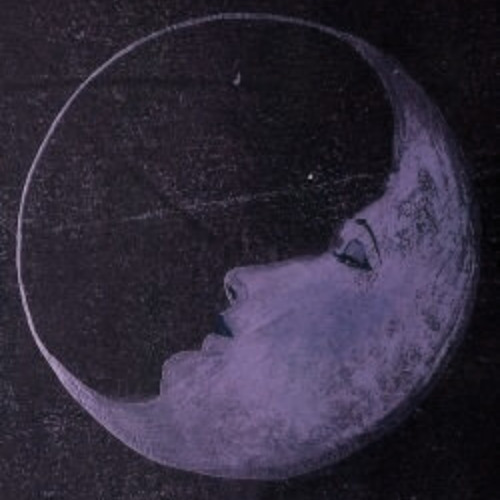

lithuanian mythology: dalia
dalia is the giver and taker of goods and property. she is often confused with and hard to distinguish from laima, another goddess of fate. sometimes dalia is thought of as a different manifestation of laima. however, laima is more involved in predicting the length of a person's life while dalia is more concerned with material wealth a person would earn during the lifetime – allotting a proper share to everyone.
#lithuanian mythology#dalia#gods and goddesses#mythologyedit#mythedit#*mine*#lithuanianmythologyedit
136 notes
·
View notes
Text
I want to make information on Lithuanian folklore in English more public so I am uploading the threads that until now were only on my Twitter. I present to you a comprehensive thread on aitvarai, the ancient Lithuanian deities of the skies
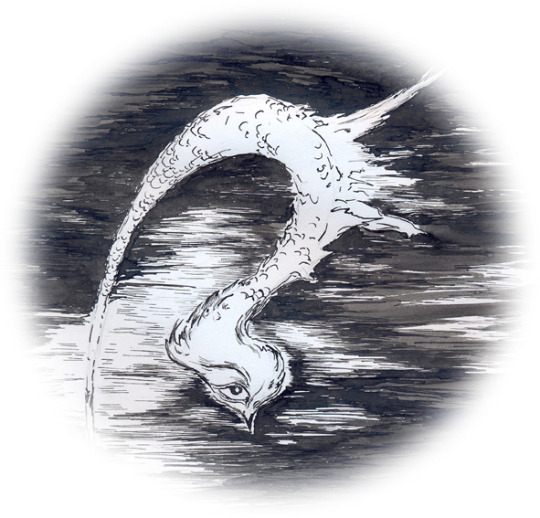
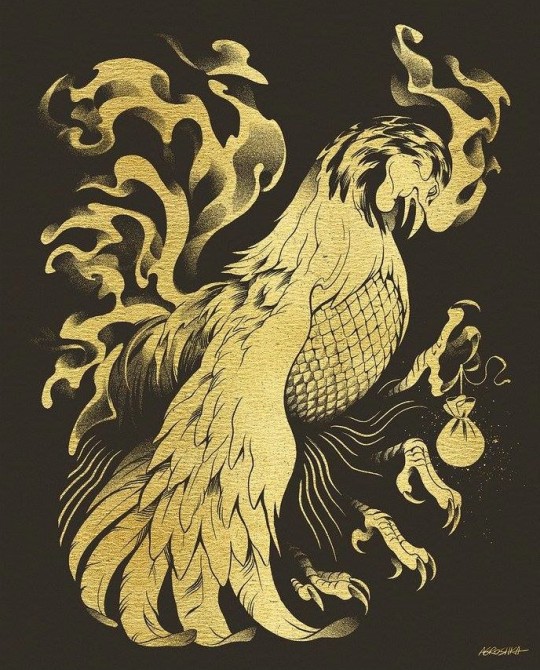
(art credits: Neringa Meškauskaitė, Agroshka )
Aitvarai (etymologically "ones to appease" or "irrepressible force") are domestic creatures associated with all 4 elements: a comet of fire which harnesses wind for chaos, helping Earth and its people while being chased and punished by Perkūnas for stealing water.
Most commonly a black rooster, they can appear as a variety of creatures: different kinds of black birds, grass snakes, whirlwinds, comets and even men if they fall in love with a woman that they want to marry.
Though very powerful ancient beings, Aitvarai choose to associate themselves with people, with villagers being able to either hatch them from an egg of a 7 year old rooster or attract them by leaving out hot, untouched meals like porridge and scrambled eggs.
When part of a household, the duties of an aitvaras were to bring riches to his caretakers, either as money (money carrying aitvarai were golden, deep red or silver in coloration) or as wheat (grey and black colors). Note that aitvarai only served the poor, tricking the wealthy people who tried to use them.
Aitvarai were both a blessing and a curse: while they did bring wealth, they did it by stealing from the neighbors of their master, making them most hated in the local village. They were also clingy and dangerous to keep, burning down the houses of those who mishandled them by feeding them manure, tampering with their meals or disobeying the rules they set for the person.
It is said however that their thieving, evil nature was a characteristic given to them by the Catholic church, which wanted to demonize every pagan creature in Baltic mythology.
In fact, aitvarai were considered genuine problems by those who believed that they would steal from them: from warding off statuettes in granaries to court cases from 1700's accusing people of harboring an aitvaras (I found only one source claiming this, so take it with a grain of salt).
However, the desire to have an aitvaras was apparent as well, shown by modifications peasants would make to their homes: holes in the doors of granaries would be made so an aitvaras could enter the home easily.
Some rituals for stealing back from a flying aitvaras exist as well, ranging from simply showing it your bottom, to cutting oneself with a rusty knife, pinning the corner of your jacket to the ground, ripping or otherwise ruining clothing.
Even if the reaction of people to them was mixed, aitvarai were considered pests by the gods due to their tendency to drink/hoard water, for which they were struck dead by Perkūnas, exploding into sparks that caused forest fires, the thunder god's lightning forming ponds, holes and swamps, terraforming the earth.
#lithuania#mythology#folklore#lithuanian folklore#lithuanian mythology#aitvaras#aitvarai#eastern europe#Viltės threads
163 notes
·
View notes
Text
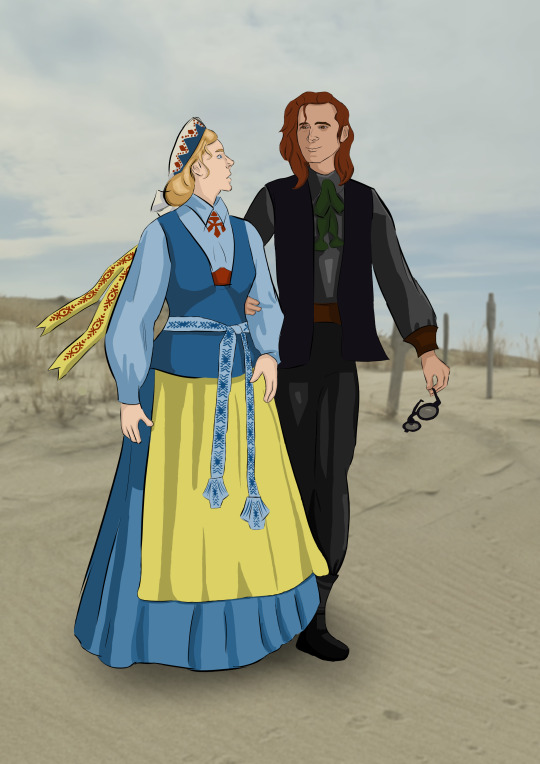
Crowley and Aziraphaella based on my 18th century fic!
You can read it on Ao3
You can read 1chap, 2chap on tumblr
#my art#my fic#alternative universe#alternative universe humans#aziracrow#aziraphaella#aziraphale#christianity#crowley#crowley x aziraphale#fairy tales#fem!aziraphale#good omens#good omens au#lithuanian mythology#lithuanian history#lithuanian folklore#long hair crowley#paganism#religion#ineffable spouses#ineffable husbands
37 notes
·
View notes
Text
Chapter one of The Queen Of The Dunes
Summary of the fic:
Crowley and Aziraphaella live in a small fishermen village which is surrounded by dunes from one side and from the other by the sea. Everyone knows Crowley who is famous because of his harmless but annoying jokes and everyone knows Aziraphaella - her kindness and her love for telling children her stories.
Every villager is used to see Crowley as lazy and irresponsible fellow, while Aziraphaella tries to open his hidden side.
As they are trying to get to know each other closer, they notice horrible things happening to their village.
Chapter one summary:
Aziraphaella finally meets Crowley in person. Although their first meeting doesn't go quite well, she decides to invite Crowley for a walk, hoping that the this meeting will be more successful.
Word count: 2k
Next chapters will be longer, this one is like an introduction.
You can read it on AO3
This work is based on Lithuanian folklore, mythology and everything is happening in this country, but you don't have to know anything about Lithuania itself in 18th century, as everything is explained.
#my fic#good omens#fem aziraphale#crowley#ineffable husbands#ineffable spouses#aziraphaella#mythology and folklore#lithuania#lithuanian history#lithuanian mythology#lithuanian folklore#paganism#christianity#religion#fairy tales#alternative universe#alternative universe humans#aziracrow#aziraphale#fem!aziraphale#Good omens au#Gomens#long hair crowley#crowley x aziraphale
25 notes
·
View notes
Text
Here's my another art work from my art school 🏫 💖 ✨️ 💓 💛 💕
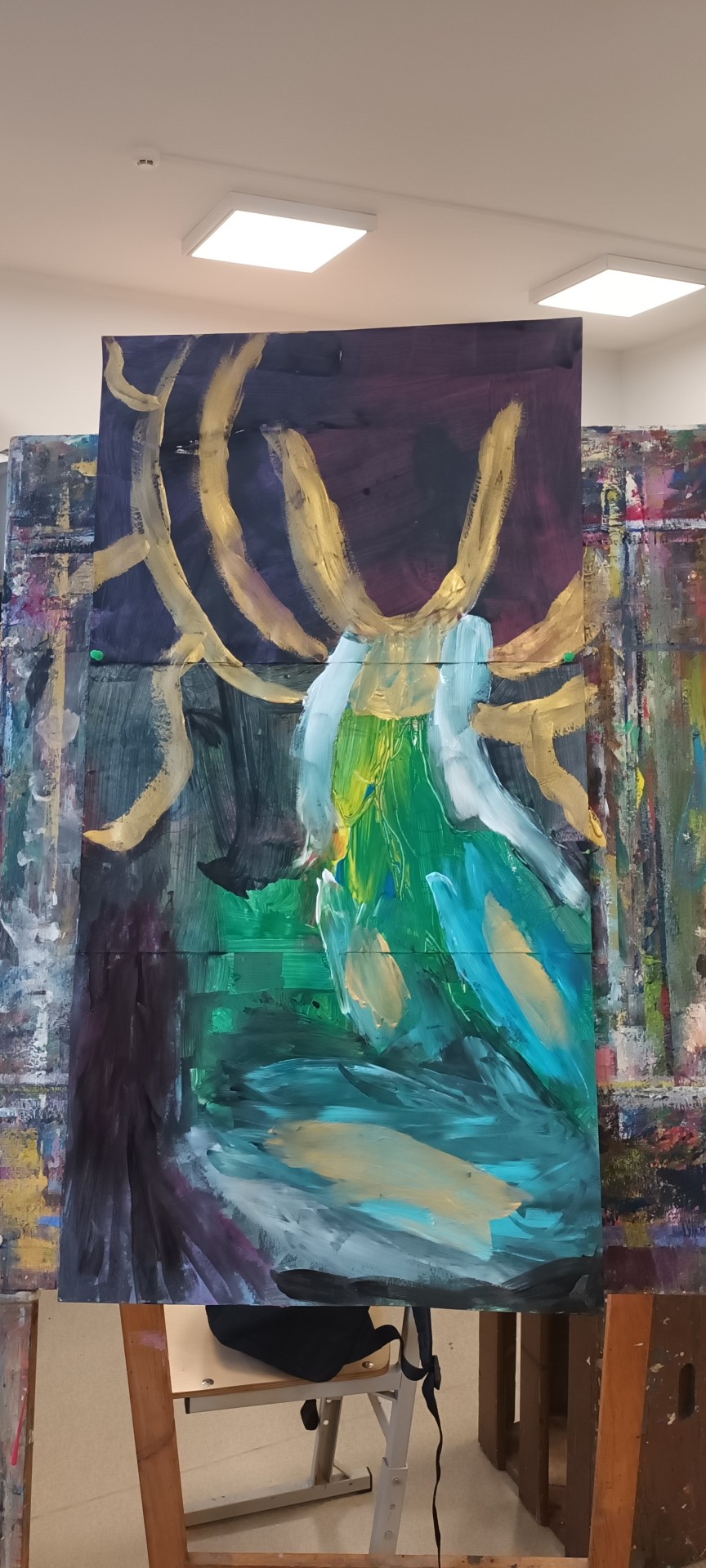
I gonna call this painting Saulė The Goddess of the Sun
Saulė is The Goddess of the sun from my Baltic Lithuanian culture mythology and also Latvian mythology too
#lithuanian artist#baltic artist#european artist#beginner artist#wannabe artist#small artist#small art account#my artwork#my art#traditional art#acrylic art#my culture#baltic mythology#lithuanian mythology#latvian mythology#lithuanian hetalian#hetalian
37 notes
·
View notes
Text

Absolutely stunning character Pasha for sweetest person ever 💚 @antiquewhim 💚
#my art#traditional art#oc#gift#not my oc#lithuanian mythology#laumė#украртпідтримка#український тамблер#український tumblr#украрт#укртумбочка#ukrart#арткозацтво#traditional#watercolor#watercolor art#watercolour art#Chudovysko art
103 notes
·
View notes
Text
BRO WHATTTT
"The Slavs took over the worship of Perkūnas from the Lithuanians. The Slavic Jupiter was Jessė, and after taking over the rite from the Lithuanians, they began to call it Perun. Already in 980, Vladimir The Great introduced his worship to Kyiv, placing his idol on the mountain, which he had seen in Lithuania when he was staying there, having fled from Novgorod, fearing his brother Yaropolk. And his representative Svinield at the same time introduced the rite of Perun in Great Nogard. In Kyiv, the idol was wooden, the head was silver, the mustache was golden (Slavs then shaved their beards, only wore mustaches) and held a flint in his hand. Oak wood was constantly burning near the idol. After being baptized, Vladimir worshiped that idol in 988, dragged him down the Dnieper and let him swim down. The russians did not worship Perkūnas and the very name was foreign to them (Prof. A. Brückner)."
"Parjanya (Devanagari पर्जान्य, - literally "rain cloud") is the god of the thunder cloud and rain in Vedic mythology."
"Згідно з першою, особове ім'я *Perunъ утворено від дієслова *pьrati («бити, ударяти», пор. укр. прати) і суфікса діяча -unъ (пор. «бігун», «стрибун» тощо). Таким чином, враховуючи, що Перун вважався покровителем війська, а отже і битв (пор. укр. заст. пря «бій», «боротьба», «борня»), ім'я Перун має значення «Той, що пере, б'є, ударяє (громом і блискавкою), заохочує на прю». Подальше перенесення: «бог грому» → «грім, блискавка» закріпилось в слов'янських мовах ідентичними словами, що позначають грім і блискавку — заст. укр. перун («грім»), заст. біл. пярун, заст. рос. перун («блискавка»), пол. piorun («грім»). У сілезькому діалекті польської використовується вигук «Jerunie!"
Funny enough because Baltic Prussians (I guess) call a general "Jenerolė". (In the song "Neišeik, Saulala"). I need to study Silesian language asap.
#okay i can agree with the part where russians didn't worship perun#but who the hell is Jessė???#Lithuania#Lithuanian mythology#paganism#baltic mythology#slavic mythology#Ukraine#Belarus#linguistics
7 notes
·
View notes
Text
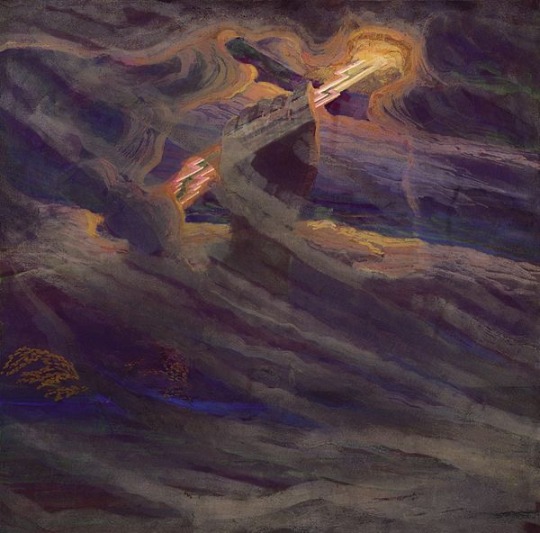
Perkūnas
The Lithuanian god of Thunder
Attributes: lighting, storms, the sky, an axe or sledgehammer
Animals: goat
Plants: oak
Colours: black, white, grey
The sky deity of the Baltic religion, Perkūnas, is regarded as a fertility god and the guardian of law and order apart from being the god of thunder and lightning. Perkūnas is the most important Lithuanian god, and is the central figure in the Pantheon. The oak, which is the tree most frequently struck by lightning, is regarded as sacred to him.
Perkunas is usually depicted as a middle-aged man riding a two-wheeled cart with goats. In some accounts, the thunder god is seen driving a flaming horse or a cart of white and red horses through the skies. He would be identified by the constellation of Ursa Major.
On his heavenly chariot, Perkunas is holding a goat with one hand while he uses an axe or horn on the other.

Mythology
Folklore usually emphasises that Perkūnas is a patron of weather, he lives between the heaven and the earth in the clouds, he commands the thunder and lightning. Thus Perkūnas occupies the centre of the structure of the universe, becomes the master of the atmosphere (Perkūnas is correspondingly associated with the heaven and the devil - Velnias with the earth, underground, water). Perkūnas possesses a two-wheeled cart harnessed by two goats or horses , and rides through the sky , the sound of the wheels often causes thunder. Perkūnas strikes and chases the devil or devils, though often it is said that this animosity is based on personal grounds because of a certain act the devil committed (theft, insult, abduction of Vaiva, as mentioned below).
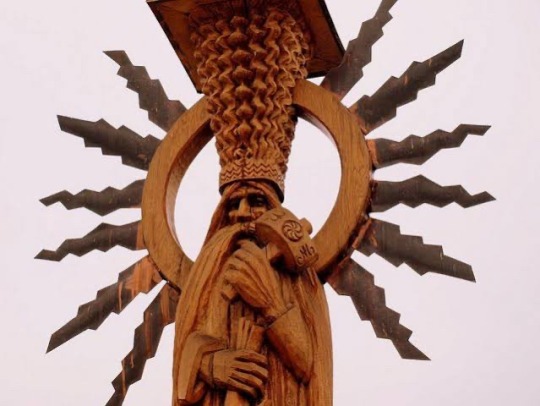
An important function of Perkūnas is to fight Velnias. He is sometimes considered the antithesis of Perkūnas and is the god of the underworld and death. Christianity considers "Velnias" akin to their "devil", though this is not in line with ancient beliefs.
Perkūnas pursues his opponent, Velnias, for picaroon or theft of fertility and cattle. Velnias hides in trees, under stones, or turns into various animals: a black cat, dog, pig, goat, lamb, pike, cow or a person to avoid Perkūnas.
Perkūnas pursues an opponent in the sky on a chariot, made from stone and fire (Lithuanian ugnies ratai). Sometimes the chariot is made from red iron.
Perkūnas possesses many weapons. They include an axe or sledgehammer, stones, a sword, lightning bolts, a bow and arrows, a club, and an iron or fiery knife. Perkūnas is the creator of the weapons (Akmeninis kalvis, "the stone smith") or he is helped by the heavenly smith Televelis (Kalvelis).
Perkūnas simultaneously is given the function of the patron of fertility, when he rolls his thunder for the first time in spring the grass starts growing, the processes of vegetation begin, Perkūnas also appears in the wedding symbolism. One other function of Perkūnas is keeping justice. He chases devils but he also punishes bad people, fights evil spirits and keeps the order of the universe.
According to ancient tradition, people who were struck by lightning were protected from devils. The objects that were struck by lightning were also used to cure various ailments, such as fever, toothache, and anxiety. Perkūnas is thus seen as a god of healing as well as destruction.
In some songs Perkūnas, on the way to the wedding of Aušrinė (dawn; the daughter of the Sun), strikes a golden oak. The oak is a tree of the thunder god in the Baltic mythology. Lithuanian Perkūno ąžuolas or Latvian Pērkona ozols ("oak of Perkūnas") is mentioned in a source dated to the first half of the 19th century.
Perkūnas is also connected to Thursday. Thursday is the day of the Thunderer in many traditions: compare Polabian Peräune-dǻn ("day of Perun"), Lithuanian Perkūno diena. Perkūnas is associated with the Roman god Jupiter in early sources. Thursday is a day of thunder-storms and rains, and also of weddings.
Family
In most myths, Perkūnas’s wife is Žemyna, the goddess of the earth. In some myths, Perkūnas would expel his wife and children and then remain in the sky by himself. The reason for this is that Perkūnas was given the responsibility of the stones in the sky whose rumbling and rubbing against each other tend to generate thunder and lightning during storms.
In songs about a "heavenly wedding" Saulė is married to Perkūnas amd cheats on Perkūnas with Mėnulis (the Moon); Perkūnas splits Mėnulis in half with a sword, which accounts for the moon phases we see today.
According to another, more popular version, Mėnulis cheats on the Sun with Aušrinė (the morning star) just after the wedding, and Perkūnas punishes him. However, he does not learn and repeats the adultery and is punished again every month. Other explanations say it is why the Sun shines during the day and the Moon at night. Though divorced, both want to see their daughter Žemyna (the Earth).
Some stories claim that Perkūnas and a woman known as Vaiva or the rainbow were supposed to get married but the bride was kidnapped by Velnias, the god of the underworld. Since then, Perkūnas has been hunting Velnias. Some stories also claim that there are four sons of Perkunas who are representative of the four seasons or the four cardinal directions. Sometimes there are seven or nine Perkūnai referred to as brothers. It is said in Lithuanian "Perkūnų yra daug" ("there are many thunders").
#Lithuanian mythology#baltic mythology#baltic paganism#perkūnas#Perkunas#thunder god#Lithuanian deities#thunder#lightning#paganism#witchblr#paganblr#mythology and folklore#mythology
29 notes
·
View notes
Text
"Ragana's name derives from a root word meaning "horn" or "crescent". Alternatively, her name derives from a root verb meaning "to see". Ragana is an ancient pre-Indo-European spirit, a powerful prophetess who reveals the future. She also knows the past: devotion to Ragana dates back to the Neolithic era, the New Stone Age.
Ragana rules over night, winter, birth, death, destruction, rebirth and regeneration. She is a goddess of fertility, abundance and menopause, which begins with the touch of her red wand. Ragana, the prophetess, sees all, knows all and is all-powerful. She is a goddess of death and a master healer who can supposedly cure any illness or disease.
Ragana can bless or curse. She controls the fertility and milk supply of women and animals. It causes and cures infertility and impotence. Ragana controls the weather, raising and calming storms and winds. She is the guardian of the cycles of nature: creation, growth, decline and destruction. Ragana can be understood as a spirit of balance. Even her negative powers can be understood as a blessing. Ragana stops the rise of the sun after the summer solstice. What would happen if the power of the sun was not controlled? If after the Summer Solstice, the power of the sun only increased?
• There may be a goddess Ragana.
• There may be a family of closely related spirits all called Ragana.
• There may be one more goddess Ragana with her retinue of servants, lesser but still formidable spirits called Raganas.
• Ragana's priestesses and mortal devotees are also known as Ragana.
In modern Latvia and Lithuania, the word ragana literally means “witch” (and not in the most positive sense of the word!). According to Lithuanian folklore, witches fly to the tops of hills to meet Ragana on her holy night, the Winter Solstice.
Ragana cuts ice holes in frozen lakes to bathe in icy water. Ragana rarely walks. She flies by transforming into a bird or riding on a branch, twig or tree stump. Ragana is a seer. She doesn't necessarily want to be seen. Woe to the men who surprise her and her servants, especially if they are caught bathing, dancing, skipping, celebrating or otherwise in ritual. First Ragana and Raganas devour men sexually; then they literally devour them."
"Ragana was demonized long before Christianity arrived in the region. Worshiped before the arrival of the Indo-Europeans, she was never assimilated or incorporated into their pantheon, in which male deities like Perkunas play dominant roles. Pre-Indo-European goddesses were assimilated by marriage to these deities. Ragana, apparently not ideal wife material, was not married to any of them. Author Vilija Vyté in the book Of Gods and Holidays: The Baltic Heritage describes Ragana as the "nightmare of patriarchy".
After the arrival of Christianity, her image only worsened: Ragana was demoted to a witch who supposedly brings misfortune to humans and animals, a warning perhaps intended to make devotees stop worshiping her. Fairy tales often portray Ragana as grotesque. The stories simultaneously celebrate and warn against it. Like her Russian soul mate, Baba Yaga, Ragana may be portrayed as a cannibal, but her spiritual appeal and mastery remain powerful. Ragana is invoked in positive and malevolent magic. Spells and enchantments attempt to focus (or redirect!) her legendary destructive powers against the spellcaster's enemies. She is an increasingly popular neo-pagan goddess."
Source:https://occult-world.com/ragana/

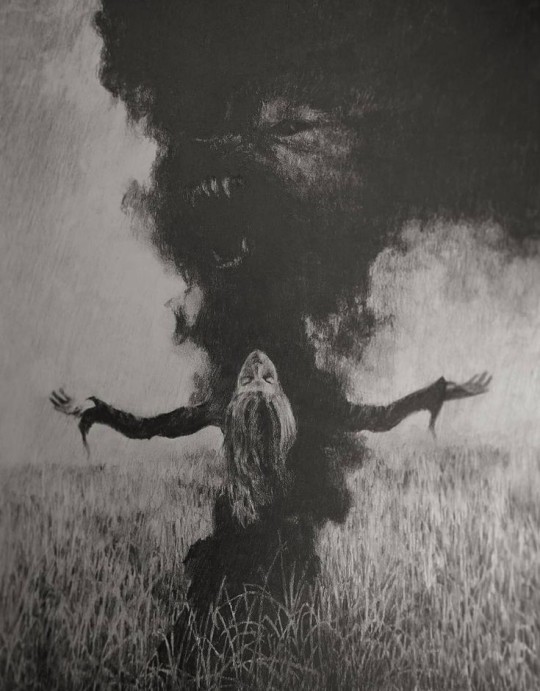
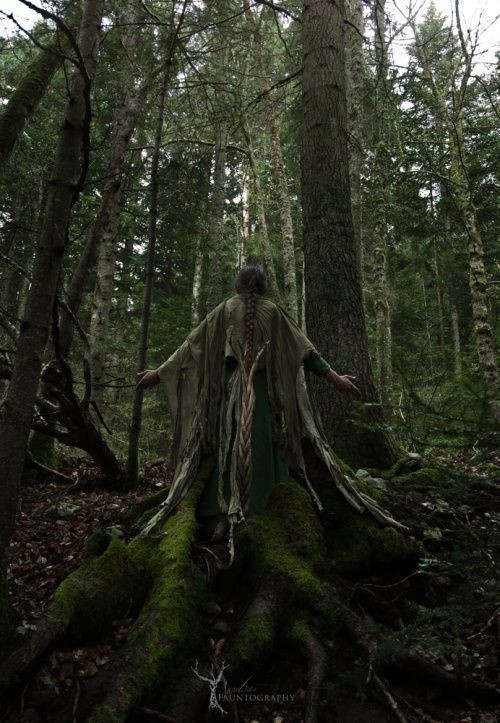



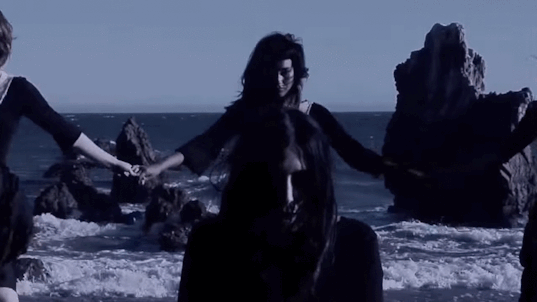


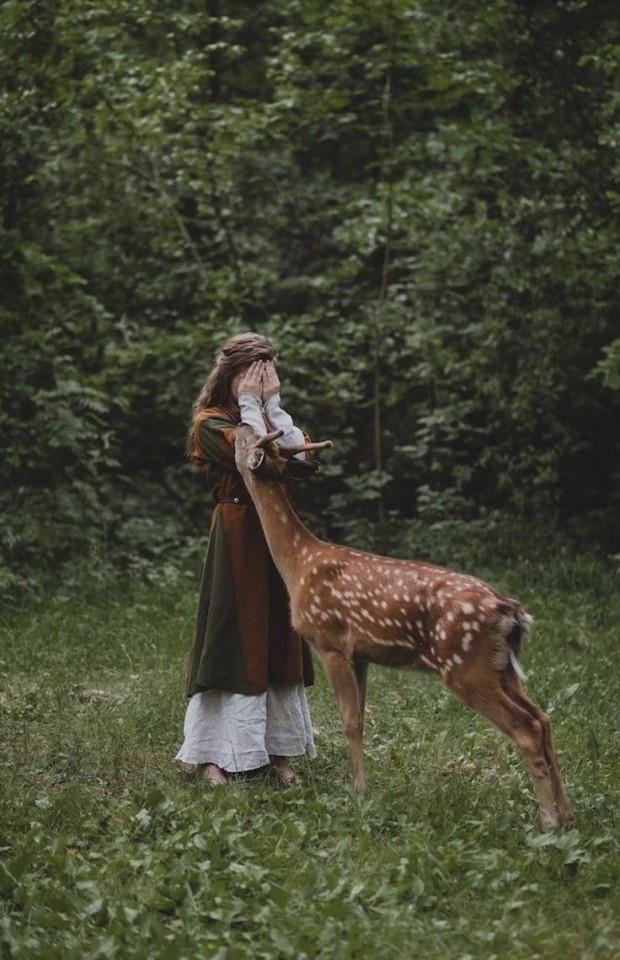
#history#Ragana#ragana#goddess of witches#witch#baltic mythology#Goddess#Baltic goddess#goddess of witchcraft#Goddess ragana#Lithuanian mythology
20 notes
·
View notes
Text
Lithuanian and broadly Baltic symbols for the sacred žaltys snake, compared to the "cool S" or "stussy" that was somehow ubiquitously drawn by bored middle schoolers. We are just drawn to honor the snake :3~

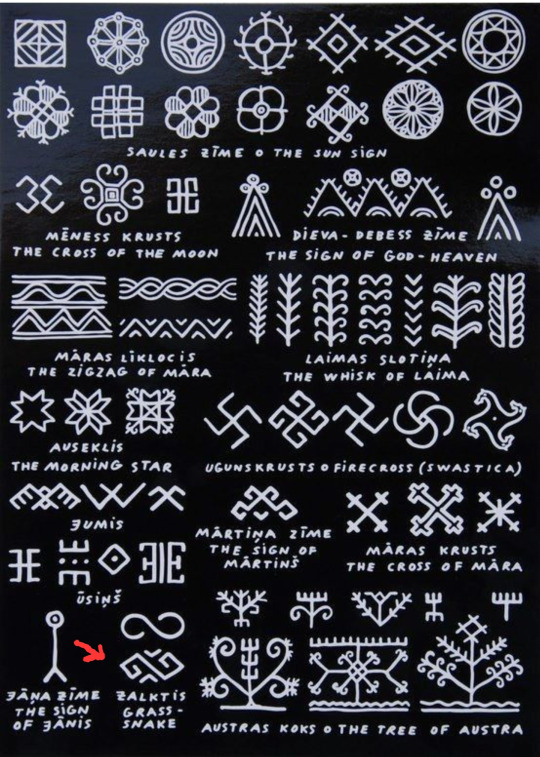
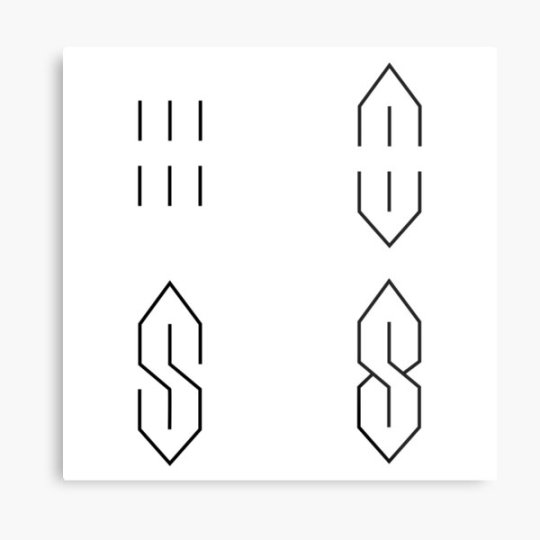
#judgment snake#snake cult#Zinnia's snake cult#cool S#stussy#Lithuania#Lithuanian mythology#Baltic mythology#Lithuanian folk religion#žaltys#snakes#tw snakes#grass snake#Natrix natrix
36 notes
·
View notes
Photo



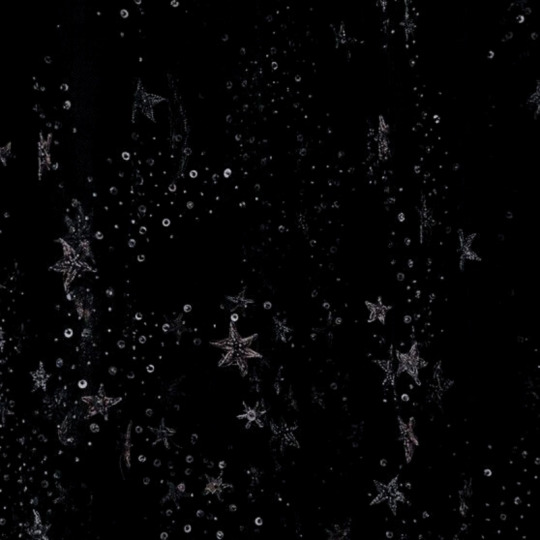





a-z myths: vakare (lithuanian mythology)
vakare is the goddess and personification of the evening star.
311 notes
·
View notes
Text
Enough postponing, here's my attempt at making something comprehensive on one of the most varied creatures in Lithuanian folklore: laumės (Art credits: Marcė Katiliūtė)
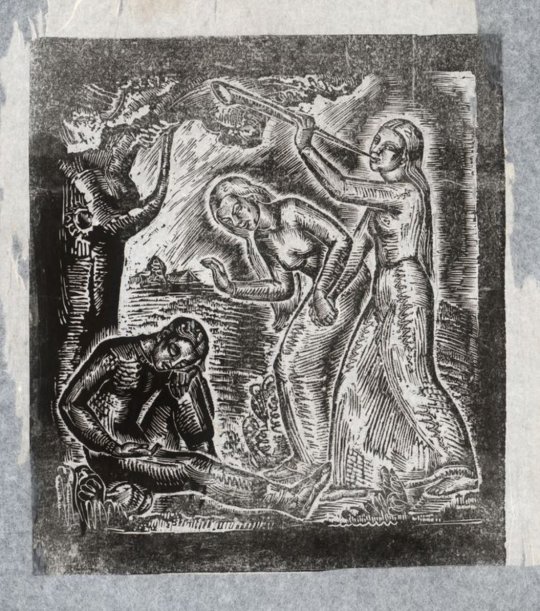
Basically, laumės are groups of humanoid women, connected with water, birch, night and the act of weaving. Primarily considered bridges between humans and gods, they inhabit forests while having the ability to summon rain and weave rainbows.They interact with people by bathing in saunas after everyone is gone. Appeased laumės are said to leave textiles as a reward for a clean, warm sauna or any offerings made to them. Their day is Thursday, just like Perkūnas' and they're most active during the night.
Now onto complicated stuff: there are many variations when it comes to laumės’ appearance. Age ranges from young to old, some are said to have metal nails, some have chicken feet and feathered bodies hiding under white clothes which let them interact with humans. The earliest depiction of laumės was in the form of a dove, the bird of Goddess Laumė, sometimes as goat-headed or horned women, bears, cats. They’re either depicted as incredibly alluring and sexual or grotesque and terrifying. Their views towards humans also change: they can be only dangerous to men, sometimes they’re most dangerous to babies, which they exchange for bundles of wheat in the crib, the bundles growing into laumiukai (similar to fae changelings) overnight. It is unclear what they do to the stolen babies. In some tales they're shown as very ruthless, uncaring of their safety, in others they're maternal, stealing out of desire for motherhood and accidentally killing the babies out of love. Sometimes they can be helpful to weavers, however this is achieved only after guessing a riddle or obeying a specific rule, on Thursdays. Even then, should a laumė run out of material, she'll weave in hair or intestines of the woman whose work she's finishing.
Overall, laumės can be called morally grey: they're wonderful seamstresses who gift their handiwork to humans, but at the same time deadly, being able to thinly slice and weave an entire person as if they were wool.
SPECULATION: Their origin is quite interesting. I think that there may be a tie between them and the matriachal goddess Laumė (shown below), who, after having a child with a human man, was "banished" to Earth by the new patriarchal gods but this is JUST my opinion that is not based off of any source and moreso speculative connections between Laumė and laumės
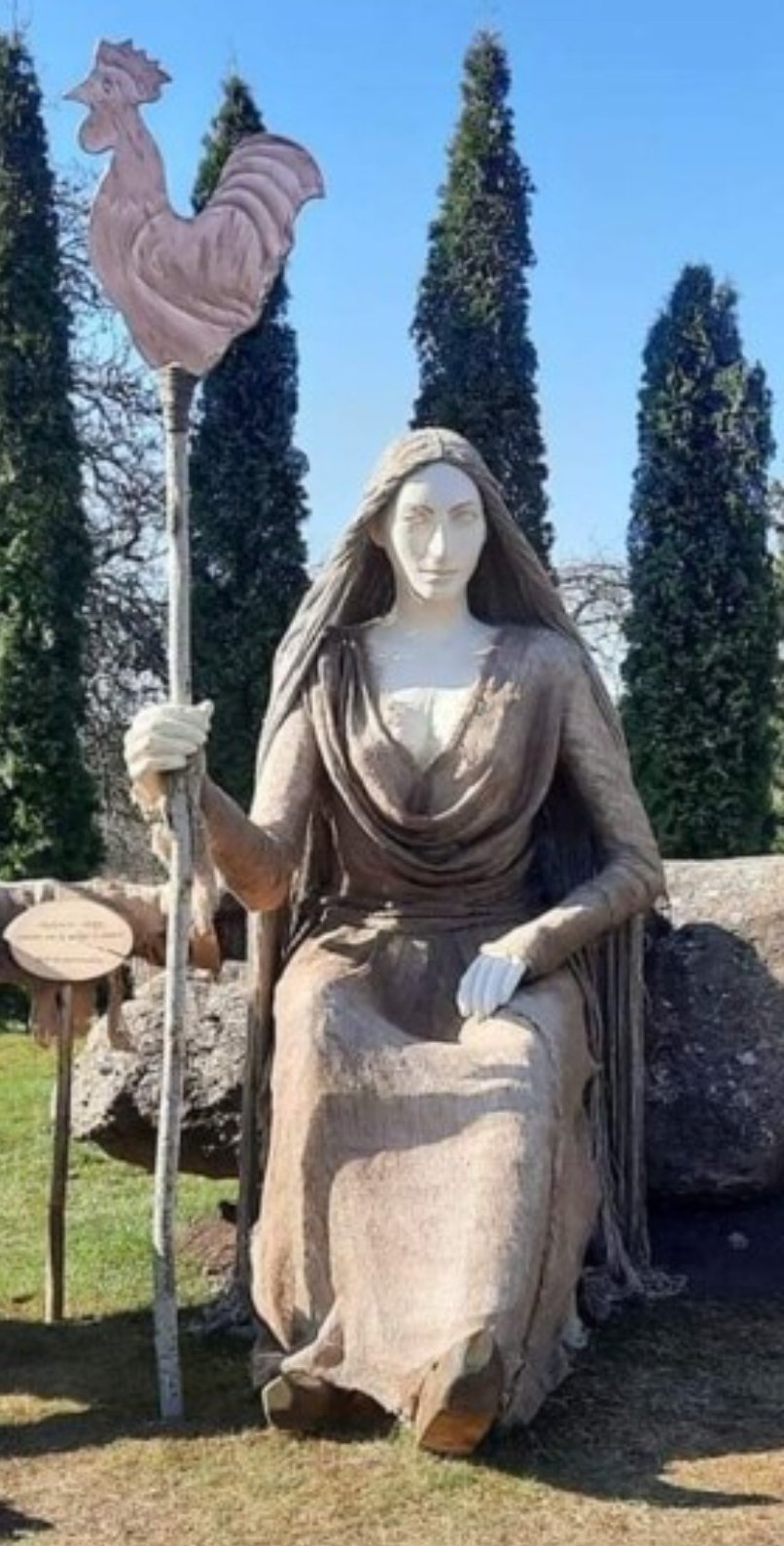

Laumės are associated with mistletoe and similar parasitic plants seen on birch trees, from which they like to swing. Some sources claim that the so-called “laumė broom” can banish laumiukai from a home when they're beaten with it. Their ties with bodies of water, by which they dance and summon rain and new moon are also apparent, as well as their specific fear of flax. Though beings with many variations, they are the most famous characters in Lithuanian folklore along with aitvarai.
#viltės threads#folklore#eastern europe#lithuania#lithuanian folklore#lithuanian mythology#mythology
61 notes
·
View notes
Text
Chapter 2 of The Queen Of The Dunes
Chapter summary: Crowley and Aziraphaella finally meet each other. The girl discovers that the village's most famous 'snake' has an interest she never could have thought of him having.
Word count: 5k
You can read it on Ao3
You can read chapter 1 on tumblr
Full second chapter under the cut:
The girl got up early in the morning, before the first rooster crowed and the sun rose, and went about her daily business by candlelight. She washed her face, swept the still fairly new wooden floor and prepared the food, always looking out of the window to see if the sun had coloured the whole sea pinkish red. Almost the same colour as Crowley's hair...
Scolding herself for those thoughts, she greeted her parents, who stood up and thanked her in a friendly manner when they saw the holiday clothes already smoothed and ready to wear. They were amazed at their daughter's diligence, for levelling clothes was time-consuming. Still wet clothes had to be twisted around a kind of wooden rolling pin, then with a sudden movement the cloth had to be rolled on the table, using a board with a scalloped bottom, and then rolled around the rolling pin back again. This was repeated until the clothes were perfectly smooth, and since metal coal irons didn't do so well with linen, the practice was still popular to their day.
The mother went to check on the animals, while the father sat on the bench and smoked his pipe, looking out the window. Since it was Sunday morning, everyone was preparing to go to the local little church where, although the village population was small, everyone could barely fit on the narrow pews in a small and stuffy room where the only natural source of light was the stained glass window above the wooden head of Jesus, set so that at certain time of the day the sunlight would fall on the altar itself. If there were no candle stands on the sides, people would fall over each other, stumbling over the uneven clay floor, but that didn't stop the faithful from continuing to walk there with eagerness to listen to the priest's long discourse on the past, present and future for which people should be thankful.
Having announced that she was going for a walk, and having met with no complaints - the father considered that his daughter had the right to do what she wanted, for he was completely sure that nothing bad would happen, and Aziraphaella was already a responsible adult, therefore could decide for herself, but it was still nice that she always announced that she was going somewhere.
When the girl went outside, the sun was already peeking out from behind the sea, and the blonde headed towards the dunes without waiting, knowing that the way through the loose sand would take quite some time, and not wanting to keep Crowley waiting - after all, she was the one who had asked the guy to meet her! Even if she had no idea what to talk to him about, or if they'd even find common topics of conversation.
When she reached the top, she began to look around. From here she had a view of the sea that surrounded the spit on all sides, the sandy areas that looked like a desert in sunny summers, the dead dunes, and the green areas that seemed almost grey because of the scant vegetation of mosses and low grasses. Aziraphaella loved this half-island more and more each year, not understanding why some people wanted to trade this life for a bustling life in the city, where you could get lost amongst lifeless buildings and be completely destroyed emotionally without seeing so much nature around you, which allowed the mind to relax.
Aziraphaella sat down on the sand, pulled her knees up to her and dipped her toes under the sand, occasionally spreading her fingers apart and watching the sand scatter between them. She sank into her thoughts and wondered if Crowley would come. It was very impolite of her to say nothing to him at first, and then come over to arrange another meeting. He might have thought she was ashamed of him and didn't want others to see them together. It was actually quite dangerous to meet before marriage, because parents could think that the young people were doing something inappropriate and the lovers would be punished properly, but, after all, the girl didn't know Crowley as a person at all, and the idea that someone would suspect them of doing forbidden things before marriage was ridiculous.
The girl rested her chin on her knees and closed her eyes. The morning sun had not yet warmed up the ground, so it was a little chilly, the wind was blowing behind her, making strands of her hair stick to her face, but she sat relaxed and not paying attention to what was happening, as if merging with nature and becoming a part of it. Where did people who lived in cities go to relax? Were they satisfied with miserable parks with bushes here and there, where you could still hear the noise of people in the streets?
“Are you not afraid to miss the church?”
A voice which came from nowhere, not far from her, made Aziraphaella flinch and open her eyes. Crowley was standing in front of her with his hands on his belt, looking at her with his head tilted to the side. His hair was gathered into a small ponytail, but few strands still rested on his shoulders.
“Not at all," she said and immediately got up from the ground. She did it so abruptly that Crowley didn't even have time to offer her help, causing his eyebrows to rise for a moment, though perhaps that reaction was due to her words. “And you?”
The girl stopped in front of him and tilted her head to the side as well, mimicking the guy's pose. This caused him to smile, baring his teeth slightly, so sly, as if he knew something more. And what to say about that incomprehensible low grunt that Crowley often expressed himself with instead of using words. But, in fact, this manner of reply was understandable to everyone, expressing both the lad's opinion and the emotion he was feeling at the same time.
“You never go to church. I've seen you tending the chickens or sitting at the spinning wheel in front of the house," Crowley said, ignoring her question. The guy was looking her straight in the eye, she was sure of it, even though he was wearing sunglasses. He didn't seem to be accusing her, just frankly perplexed as to how someone like Aziraphaella could skip going to church and, even stranger, how her parents could take it so easily or even allow her to commit such a transgression, even though they were firm believers themselves.
Aziraphaella only smiled modestly at him without saying anything, and, looking the other way, pointed with her hand to the woods in the distance, which led to a cosy shore where no one would find them, and suggested, “We can go there.”
Crowley, who himself had walked round the whole half-island many times, at once realised what the girl meant, and nodded, following her.
“So you don't believe in God?” he asked curiously, knowing that such a question usually sounded very negative and that it was better not to bring up such topics in public, but for him it was not a taboo topic, and Aziraphaella did not seem to mind.
“In one god, no. Gods, yes. I'm a pagan.”
Crowley snorted out something in reply, as if considering her words. He himself did not believe in superstition, legends, or gods, but the answer intrigued him, for paganism had not existed in the country for centuries, and it was incredible that there were still pagans in such a remote land. He hadn't been interested in the subject before, he just knew that it had been the main religion in their country until it was forcibly replaced by another.
“So what exactly do you believe in?” he asked, not knowing how to continue the conversation. At this time they were descending a steep slope, and Crowley held the girl's hand to keep her from falling.
“That every phenomenon in nature depends on a god or a creature. You probably know Austea, don't you? The goddess of bees. Or Gabia, the goddess of fire. There are many of them, big and small, but each one is responsible for something, and if even one of them disappears, the world will fall into chaos.”
Yes, Crowley remembered something like that. Perkunas, Zemyna, Laima... He remembered a few names and their approximate duties, but there were many more. He had never really cared about any of that, but he was curious about how the pagans perceived the world around them, and he decided to test Aziraphaella to see how strong her faith was, for he was a real trickster himself.
As they walked, he looked carefully around and even lowered his glasses on his nose to see better. The girl at that moment was looking at the clear blue sky, which didn't have a single cloud on it. She looked relaxed, and Crowley was sure that he would manage to surprise her properly.
Finally the young man's sharp eyes spotted what he was looking for. He let go of Aziraphaella's hand, which he still held even when the steepest slope had long since ended. Crowley ran down and leaned suddenly towards the ground and seemed to grab something, shrieking triumphantly. Intrigued, Aziraphaella quickened her step to catch up with the guy who now had his back to her.
As she approached, Crowley suddenly turned around and looked at her through the lowered lenses of his glasses.
“And the grass snakes, hmm? The pagans believed in them, too," he said, as if trying to prove something to her. The young woman only flinched, surprised by the suddenness of his movement, but not at all frightened, looking at the black grass snake with yellow "ears" wriggling in Crowley's hands, trying to escape from his jail of fingers.
“Yes. Pagirnis is a god in the form of a snake," Aziraphaella held out her hands, and after a moment of hesitation - this was not the reaction he had expected, Crowley placed the snake in her palm. Apparently the warmth of her hands calmed the reptile a little, because the creature stopped wriggling and just curled up in a ball. “He keeps the house in order," she laughed and bent down, letting the snake loose and watching it crawl away. “When dad found the grass snake you left in his clogs, I persuaded him to keep it at home, and now I feed it eggs every morning. You mustn’t hurt them, or they will bring you bad luck.”
Crowley awkwardly looked away when he heard about his prank, but the girl only laughed, noticing his reaction, because she was not angry with him at all and, moreover, she could even thank him for such a ‘gift’.
“Hmm... Other girls are afraid of them..." he finally answered, deciding it was time to change the subject. Crowley looked thoughtfully after the snake, which finally burrowed into the sand and disappeared. “If you hear them squeak, you can be sure they saw a snake”
“Yes, unfortunately, their religion says that innocent grass snakes bring evil…” Aziraphaella sighed and said something she wouldn't dare to say to others. Apparently, Crowley really influenced people... “The Christian god is very cruel... He forces you to believe in him and doesn't want people to have a choice…”
“God has nothing to do with it. It's people who create it and then attack each other if their opinions on religion don't match. That's why I don't believe in them. Too many fights happen over things that don't exist.”
Aziraphaella chose to remain silent. Yes, their opinions didn't coincide, but she agreed that it wasn't worth fighting about it, especially since they had both expressed what they thought, what they believed or didn't believe, so there was no need to go on about it all. It would be awkward if on their first walk they immediately started hating each other.
When silence came, they started walking again, looking at the trees around them and getting closer and closer to the shore. It was a little uncomfortable as each of them sank into their own thoughts, but they were just starting to get to know each other, so they had to accept that sometimes silence would accompany them, and thus awkwardness, because one of them would have to start a new topic that would suit them both.
“So... do you believe... in... something?” Aziraphaella asked timidly, knowing that faith wasn't necessarily religion, and hoping that Crowley understood that too.
The boy didn't answer immediately. He thought for a long time, going over all the options in his head and figuring out if they would be suitable as an answer to the blonde girl who was patiently waiting for him to find the right answer. He knew exactly what she meant, but he didn't know exactly what he himself believed, which was why it took so long. No one had ever asked him a question like this before. He could answer all the questions he had ever been asked in a split second, even if he had to lie, but now that he had the opportunity to just say “no”, Crowley somehow didn't take that easy way out.
Finally they approached the shore. Aziraphaella, lifting her skirt slightly, sat down on the grass and dipped her feet into the water. Crowley sat down beside her, tucking his legs under himself, and watched the girl move her white feet under the water. Her movements raised the sand, causing several fish to swim up to her, thinking that the raised sand was food.
“Don't believe in the world, believe in fairy tales,” Crowley said after a while and smiled to himself. Aziraphaella looked at him, waiting for further explanation, and tilted her head interestedly. She couldn't say that she had expected such an answer from Crowley, but she was glad that he had decided to keep the conversation going and try to answer her honestly. “Well... you've probably seen me... I often listen to you while you are telling fairy tales to children…”
“So you like fairy tales?” the blonde asked when he was silent for a long time, thinking about how ridiculous his words sounded and twisting a stalk of grass into a knot because he didn't know what to do with his hands.
“When they're told by you…” Crowley suddenly raised his head and looked directly into her blue eyes, which were almost indistinguishable from the colour of the sky, but actually much more beautiful, because they were full of innocence and enthusiasm. The girl blushed slightly, and now it was her turn to look away for a moment. “Actually, well... Icreatemyownfairytales," he said it so fast that his words strung together, and Aziraphaella blinked a few times and frowned slightly, trying to make out at least one.
“What..?” she asked quietly, still blushing and thinking she should have listened more carefully.
Crowley took a deep breath, realising he'd fallen into a hole he'd dug himself. If he'd kept quiet, he could have avoided all this. Or turned it into a joke, but now it seemed like he was really into it and Aziraphaella wouldn't believe him if he tried to joke about it, saying he didn't really believe in anything.
“I create... my own… well… fairy tales…” he answered very timidly, and would have blushed himself, but the contrast of his red hair with his pale face made it completely unnoticeable.
“Really? Oh, wow! Couldn't you... could you tell me one of them?” The girl even stopped shuffling her feet, ready to catch every word he said as carefully as possible, in case Crowley was shy and spoke again at lightning speed.
The young man opened his mouth, pondering how he could avoid this whole situation and why he had even admitted to it in the first place. If he had remained silent as always, it would have been much better..! However, not only was he influencing Aziraphaella, but she was influencing him as well. Crowley was afraid to admit that all these stories were quite simple and he would not be able to gather a bunch of children around him and tell them in such a way that they would listen to the end. Since he himself could neither read nor write, he often forgot the endings of his own stories, and sometimes they merged into one, and sometimes the names of the characters changed halfway through. In short, Crowley was not the best storyteller, so he decided to get out of the situation as quickly as possible, and fortunately his wits helped him to do so.
“Recently I began to create one…” even a lie like that, told directly to Aziraphaella's face, somehow seemed cheeky to him. “It's not finished yet, so... Well, I can't really tell you all of it yet.”
Aziraphaella nodded, afraid to even interrupt Crowley. The boy swallowed, realising that he was really in trouble now, and began to look around, trying to remain calm. His gaze lingered on the trees, the sea, the sand, the sky... Nothing that could help him think of anything that would be interesting to listen to.
Finally he remembered the grass snake he already had seen and began to think of how to come up with a story about it. Realising that Aziraphaella might not be interested in hearing about the life of the snake and its hardships, Crowley looked again at the surrounding trees. A name immediately came to mind, and the lake finally told him how to begin the story.
“There were three sisters swimming once…” Crowley began slowly, giving himself time to think about what to say next. Aziraphaella seemed to hold her breath, eagerly swallowing his every word and nodding quickly, as if asking him to continue the story. “They were swimming until the sun began to equal the sea…
“At last they climbed out, began to dress, and then... Then the youngest, whose name was Egle, began to shriek... The other two ran up to her and asked her what was wrong. They took a closer look - there was a grass snake in her clothes and it wouldn't crawl away. The eldest wanted to kill it with a stick, but he started to speak…”
Aziraphaella gasped. The young man didn't think that he was telling something interesting, he was afraid that the girl would realise that he was only making up a story now, and perhaps it would become clear when he got stuck in some place and didn't know what to say next, or because or because he was constantly searching for the right words.
“And what did it say?” she asked suddenly, after Crowley had gone silent, maybe for a minute, not realising it at all and just looking down. Why was he ashamed of himself for coming up with such a stupid lie? After all, he usually lied about much more important things.
“The snake, it… it told the youngest sister Egle that if she promised to marry him, he would crawl out of her shirt.”
“And she?..” the girl asked, eyes wide.
“And she... She promised. The sisters said there was nothing wrong with it. In the end, it was just a snake. Whether she promised or not, nothing would change and she won't have to get married. So the snake crawled away, having received the promise, the sisters went home and immediately forgot about that meeting,” Crowley bit his lip, realising how ridiculous it all sounded, but Aziraphaella listened to him anyway, as if he were telling something interesting.
“And what happened next?” No doubt the girl was extremely impressed with what Crowley thought was a silly story, and wanted to know how it ended. Of course, the guy could have said that he hadn't thought of anything else, but he thought he would appear a fool in front of her for making up simple, short, and meaningless stories. He had to think of something else.
“After three days…” suddenly Crowley decided that it was time to really surprise Aziraphaella and show that he really knew how to create tales that could impress with their originality. “Three days later, when Egle was at home with her twelve brothers and two sisters…” Yes, the boy thought, the more the better. “The ground began to shake... When they looked out the window, they saw that in the distance, there were a lot of snakes crawling and wriggling towards them in all sorts of ways, and even the sun seemed to be darkened by their numbers. There were so many of them that it was not clear where one began and another ended. Some big, others small... They started circling round the house, knocking on doors, windows... Her parents, of course, hid Egle, not wanting to give her away.”
“But she promised!..” Said Aziraphaella, surprised at the insolence of the protagonist.
“Would you marry a snake?” Crowley suddenly asked boldly, looking her straight in the eyes again. Apparently his tone was too harsh, because the girl was a little embarrassed, and he quickly added. “I'm sorry. I was just wondering…”
“Promises must be kept…” she said quietly after a while, running her finger over the patterns of her skirt. She wasn't sure if she could marry a snake, or if it was even possible, but if she would promise, she'd keep her promise, because she felt she had to be responsible for what she said.
Crowley only raised one eyebrow in response, but he couldn't say anything. It seemed Aziraphaella really was the kind of person who would marry a damn snake if she had promised it that. He didn't know why he thought that, since the very idea already sounded strange and unrealistic, but the girl was talking about it so freely and openly that it was hard not to believe her.
“So... Of course, Egle's loved ones didn't want to give her to the snakes... So when one of the reptiles spoke up to say that they had come here to take the bride with them, Eagle’s father decided to trick them.” Crowley fell silent, unable to think of a way to trick a group of snakes, so he looked at the girl and asked in a curious tone, as if to give her a chance to guess, at the same time remembering how she used to ask children when she told them stories what they thought about this or that aspect of the story she was telling. Of course in reality he just decided to give himself time to think. “What do you think - how?”
“Well…” she looked off into the distance and pressed her lips together slightly, thinking. “Maybe... her father... took a blanket and hid the lamb in it? And gave it to the snakes…?” - she again looked at him.
Both of Crowley's eyebrows flew upwards, causing the girl to blush even more and stare in the other direction, trying to avoid embarrassment. Aziraphaella had heard a lot of fairy tales, and frankly, she no longer had any issues when fairy tale characters managed to escape some situation in a strange way that wouldn't have worked in reality, such as the one she had suggested.
Crowley realised that his reaction was not quite appropriate (after all, he was the one who had started the story about talking snakes, so the girl's idea wasn't that outlandish), and cleared his throat, trying to think of a way out, because he didn't want to offend the blonde in such a stupid way. He wasn't surprised anymore, but the fact that someone would start hating him because of a simple story he'd made up a few minutes ago made him sad rather than amused.
“Maybe it would have worked, but... the snakes have a good sense of smell, don't they? Or at least they should have... So they'd quickly realise it wasn't Eagle under that blanket…”
“Yes... I think you're right…” Aziraphaella said quietly, smiling with barely perceptible embarrassment. “So how did the father decide to trick the snakes?”
“Well, maybe he did not exactly trick them… The father told his sons to get pitchforks…”
The girl gasped again, but this time she covered her mouth with her small hand and looked much more surprised, apparently it wasn't hard to understand why the sons had armed themselves.
“Yes, they ran outside and started swinging pitchforks, but it didn't help. There were a lot of snakes in the end… Some curled around the sons' legs, others around their arms, until they all dropped their pitchforks in surrender.” It was obvious that Crowley had vividly imagined the scene of the ‘battle’, so he did not pause and made expressive facial movements, occasionally waving his hand. Aziraphaella smiled, because finally the guy seemed to relax and spoke more freely.
Noticing her smile, Crowley fell silent and cleared his throat, himself smiling faintly. For a moment he rubbed his ear between his fingers, as if thinking, and seemed about to say something, but in the distance he heard the ringing of a church bell - the service was over.
“Oh!.. I must go home…” Aziraphaella rose abruptly from the ground. Unlike the other people who wanted to interrupt her conversation with Crowley, she actually looked sad. “Could you tell me what happened next when we're on our way back?”
“No. It would be bad if you were seen with me," Crowley said seriously, trying to hide how hard it was for him to say it. “Go. I'll stay here a while longer," he added quietly, and leaned his head back, enjoying the warm rays of the sun.
To Crowley's great surprise, the girl sat down next to him again and looked at him expectantly. Confused, the boy stared at her.
“You wanted to continue the story," she reminded him, smiling softly.
Crowley stared at her for a few more moments. Her expression was so sweet compared to the way the others usually looked at him. Even if Aziraphaella was only interested in his stories and not him, the guy was determined to create at least a hundred more for her, and would even try to memorise the names of all the characters so he wouldn't get lost.
“So... Well, the sons have failed... The big reptile spoke again. He threatened that…” Crowley quickly scratched the back of his head and continued. “That they'd kill all their cows and chickens and other animals if... well, if parents didn't give them Egle.”
“Poor souls! But Egle even promised... If I were her, I'd have given up to them by now…” said the girl, even a little worried. It was obvious that she was much more concerned about her family's welfare than her own.
“Really? Would you go outside when there are hundreds... no, thousands of snakes! At least a few would definitely crawl up your sleeve…” Crowley asked with a smile and even leaned forward slightly, reaching out his hand to the girl and moving his fingers, imitating the movement of snakes, so that Aziraphaella realised that he was joking and provoking her.
“They're not poisonous at all!..” she laughed, catching Crowley's fingers and, as if answering his mockery, began to stroke them. “If Egle has enough chickens, she can feed all the snakes with eggs and make friends with them!”
Crowley, even though he was embarrassed by the girl's bold act, didn't want to show it, so he swallowed and took Aziraphaella's hand. It was uncomfortable because he was sitting leaning forward with his arm fully extended, but he liked to see the girl embarrassed and blushing. She didn't seem to be mad or uncomfortable, not at all, in which case he would have let her go immediately and apologised. The blonde probably just didn't expect that their jokes could get to this point.
After watching her reaction for a few more seconds, Crowley moved closer, not letting go of her hand but keeping his distance. He held her fingers as if they were crystal, giving her a choice to let go. Since the girl didn't seem like she was going to answer because she was too embarrassed, Crowley continued his story.
“As you said... Eagle finally decided to surrender on her own so that her parents, sisters and brothers wouldn't suffer… The snakes immediately got out of her way and where the biggest pile of reptiles had gathered, it turned out that they were covering a golden carriage, in which, of course, instead of horses, the grass snakes themselves were harnessed…” That was the first thing that came into Crowley's head, and only when he said it out loud did he realise how silly it all sounded, but it was too late to change anything, especially as the girl didn't seem surprised by this continuation - after all, it was a fairy tale, and in a fairy tale not everything had to make sense.
“And... where did they take her?” Aziraphaella asked after a long pause during which they both stared at their intertwined fingers.
“Erm... this... well... fairy tale, after all, is... unfinished...” The blonde's question threw Crowley off balance a little; he sat back, relaxed and completely forgot that he had to keep thinking of a continuation of a story. He cursed himself in his own head for not being able to think of something else to say to spend more time with the girl. But he wouldn't be called a cunning snake if he didn't immediately come up with a solution to this dilemma. “But, um. I'm gonna keep the story going, right? And that's why we can meet again…”
The girl timidly raised her eyes to Crowley, who looked at her expectantly, afraid that she would refuse, for the villagers might quickly notice that they were both absent and begin to suspect them of the unprecedented. That, of course, would hit Aziraphaella's reputation hard.
“In a week's time. When everyone will go to church again…” she replied quietly, still blushing and averting her gaze.
Crowley nodded. He hadn't expected to meet her earlier. To be more precise, they were seeing each other often, but usually didn’t have a chance to talk, nor that they needed to, but now, at least until he told his story to the end, there was definitely a point in meeting. All that was left was to figure out how to stretch the story out as long as possible so the girl wouldn't get bored.
Crowley got up off the ground and helped Aziraphaella to her feet. She wiped her wet feet on the grass to keep the sand from sticking to them and stood for a moment, spreading her fingers and letting the thin stalks tickle her delicate skin.
“I think we can meet on the same dune… and maybe go the other way," she suggested.
“Yeah, sure…”- Crowley said, a little confused, and tilted his head up, looking up at the sky. Through the small slit between his glasses and his face, the girl watched his squinting brown eyes, which seemed to be searching for something in the wide endless blue. “Well? It would be better if you went back alone,” he said, though he wanted to spend a few more minutes together.
“Yes, I'm sorry... See you later..?” she asked, taking a few steps forward and looking back.
“Yes. Absolutely,” even Crowley himself thought he said it with a little too much confidence in his own success.
#my fic#good omens#good omens au#ineffable spouses#ineffable husbands#fem!aziraphale#gomens#long hair crowley#crowley x aziraphale#aziracrow#aziraphaella#aziraphale#crowley#alternative universe humans#alternative universe#fairy tales#christianity#lithuanian mythology#mythology and folklore#religion#paganism#lithuanian history#lithuanian folklore#lithuania#Never-let fic
19 notes
·
View notes
Photo
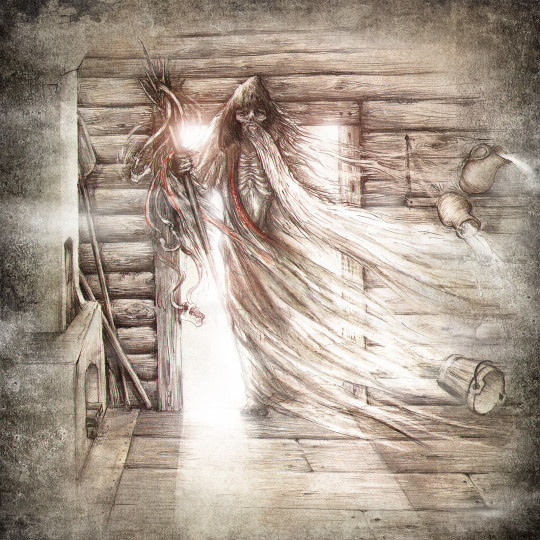
Serbai [Lithuanian folklore]
In Lithuanian and Belarussian folklore, Serbai is a personification or embodiment of hunger. It is said that when this creature enters a house, all the bread immediately disappears. Usually being depicted as an old man or at least an anthropomorphic creature, he sits down in or in front of the oven and prevents people from baking bread. He is said to wear white clothes and a hat, too. Serbai usually comes when the beans are in bloom – the link here is that the scent of beans makes people hungry, but they cannot eat bread, as Serbai stops them.
As the second source listed here points out, the story also has some pedagogical function, as this creature punishes those who waste bread (Serbai murders people who throw away bread).
Sources:
https://www.bestiary.us/serbaj
(image source: Eugene Kot)
49 notes
·
View notes
Text
New Post: Zemyna
0 notes